
Урок английского языка 7 класс
Учитель: Ковалева Любовь Николаевна
Муниципальное бюджетное общеобразовательное учреждение
«Челюскинская школа» администрации Новоазовского района
Новоазовский район, с.Казацкое, ул. Школьная
Урок английского языка по теме: Край моего детства. 7 класс.
“ The Land of my Childhood.”
Целиурока:
1. активизировать краеведческие знания и языковые умения учащихся,
2. расширять мировозрения учащихся, формировать социокультурную
компетенцию,
3. развивать умения усного ситуативного говорения, коллективной работы,
логического мышления,
4. воспитывать любов к родной земле, чувство патриотизма.
Оборудование: учебник, запись на доске, презентация, маркеры, бум ага,
Тип урока: урок обобщения и систематизация знаний учащихся
ХОД УРОКА
І. ОРГАНИЗАЦИОННЫЙ МОМЕНТ (НАЧАЛО УРОКА)
ІІ. Мотивация учебной деятельности.
T : Good morning, dear friends! How are you? I hope everybody is fine.
Let's greet each other in turn and start our lesson.
Motherland , friendship and peace,
Hello, Zhenya, How are you?
Zhenya: I'm OK.
Motherland , friendship and peace,
Hello, Shasha, How are you?
Shasha: I'm OK.
T: I'm glad you are OK and ready to the lesson.
Cообщение темы и целей урока
T: Today we are going to speak about the importance in our life – about my
native land. I hope to encourage you to work hard at your English and make a
good progress in it. Let's start.
Введение в иноязычную атмосферу:
T: You see the epigraph written on the blackboard . A great English writer G.Byron
wrote these wise words . Let's this epigraph all together .
· He who loves not his country , can love nothing.
G.Byron
T: Can you translate it into Russian? How do you understand these words?(Pupil's answer). The theme of our lesson is “ The Land of my Childhood.”
Phonetic drills
T: To take a tour about our district we shall take a bus. I'll be your driver. Have a look at the blackboard. There is a tongue-twister on it. Read the tongue-twister with different emotions:
v To run a bus you must have a pass.
Card with the sound [ au] [ ^]
|
[ ^]
|
[ au] |
|
bus |
down |
|
run |
now |
|
London |
how |
ІІ. ОСНОВНАЯ ЧАСТЬ.
1. Now let us see how well you know the history of your village or district, landmarks.
( На доске учитель размещает фотографии знаменитых мест села и района. Работа в парах . Каждая группа называет по очереди и описывает их.)
Famous landmarks
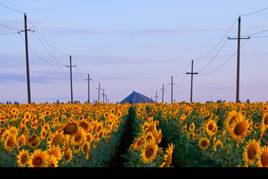 |
|||||
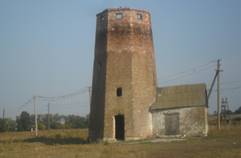 |
|||||
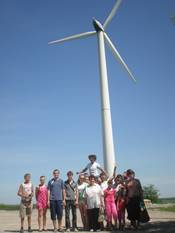 |
|||||
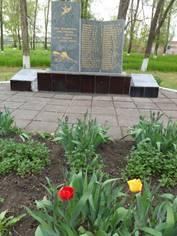
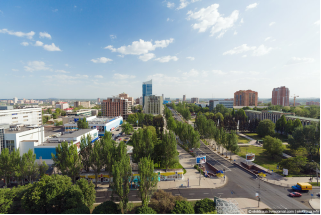
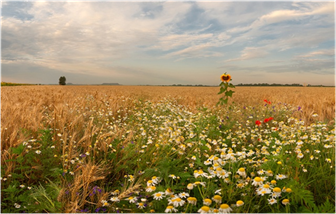
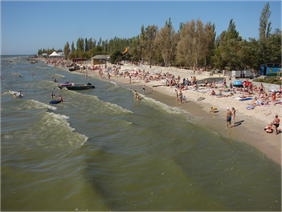 |
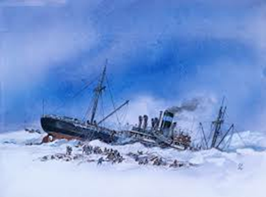
Возможные варианты описаний фотографий.
1. I live not far from the coast of Azov Sea. Azov Sea is warmest sea in the world. The Park "Meotida" included two kilometers of the coastal strip of the Azov Sea in the administrative borders of Donetsk region in the territory Novoazovsk. There are many fishes and animals here. I'm sure the coast won't be so polluted that coast will be clean. Everyone will have robotic house made.
2. I believe the history of my school connects with expedition on the ship “Cheluskin “because the name of my school is Cheluskinskaya. In our time we study in light classrooms, learn many subjects such us: Maths, English, History, Biology, Russian, Chemistry, PE, Arts, est. I think life will change and study at school will be online.
3. Donetsk is a main city in our republic. There are many universities, establishments, factories shops, green parks, museums. It's a great place to visit. Donetsk is difficult city to drive in because of the heavy traffic. There are hundreds of buses, trolley buses and minibuses, too. I like visit this city.
4. You're welcome . In village green park you see monument to heroes of Second World WarІІ. Every year we have meeting devoted the soldiers who death in Second World WarІІ.
5. Electricity is producing on the windy station.
6. In 1833 a big family Kozatskey’s settled between beautiful fields and worked on the land. At that time they built own mini plant and made materials for building houses, house- keeping building sand ets. Today you can see old Windmill.
7. Our land is rich. Sunflowers are growing in the fields. Every year the harvest is very high. People produce oil.
8. Homutovskaya Step is nature reserve. There are many rare plants and animals grow here.
2. Artists' competition.
Teacher: Well done, pupils. You know so much. You told us about landmarks. But do you know that Motherland begin from own house. Let's read the texts and draw what you have read about. Work in group. You have 5 minutes.
Presentation the picture and describe.
Text 1
There is a big house in the middle of the picture. The house is yellow with red roof. There are two windows in the house and one door. To the left of the house there is a green tree. To the right of the house there are two flowers. One flower is red, second flower is blue. Under the tree there is a black dog. On the tree there is a fat cat.
Text 2
There is a big house to the left of the picture. The house is yellow with blue
roof. There are two windows in the house and one door. To the right of the
house there is a brown bench. Behind the bench there are two green trees.
The sun is shining brightly in the blue sky. The cat is on the bench and dog is
under the bench. Near the bench there is a big red flower.
3. Задание « Правда-неправда»
Now, you can see two words “ Yes” and “No” in the classroom. You must listen the sentences and agree or disagree that go to this words.
§ Asov Sea is coolest sea in the world.
§ The Park "Meotida" included ten kilometers of the coastal strip
of the Azov Sea in the administrative borders of Donetsk
§ Donetsk is a main city in our republic.
§ Sunflowers are growing in the woods.
§ Homutovskaya Step is nature reserve.
§ Georgy Sedov is Russian hydrographer, polar explorer
In 1912 he organized an expedition to the North Pole on the ship.
Relaxation.
Pick up, pick down, stand up turn round,
Clap left, clap right, clap up, clap down,
Look left, look right, look up, look down,
Turn round, sit down, touch something …brown!
4. Презентации известных мест нашего края.
Project“ Park Meotida “ - Samusenko Polina
I am Polina Samusenko . I am a pupil of the 7 th form. My grandmother lives in Sedovo. I think I know some information about this village.
Sedovo (until 1940 Curve Kos) - urban village, in the center of the village. It is located 9 km south-east of the regional center - the city Novoazovsk . Sedovo - a fishing village on the Azov Sea . In the XVIII century people began to settle here Zaporozhye and Don Cossacks, engaged in fishing. In 1877 there was born a prominent polar explorer G. Sedov, after which in 1941 the village was renamed the Sedov (a museum). On the seaward Crooked Spit is reserve Bacai Curve spit: places of mass nesting, protected lagoons. The air is filled with scents of bromine and iodine. Settlement was founded in 1750.
The Sedovo is a branch of the regional landscape park "Meotida" and Museum Georgy Sedov.
In the village there is a narrow strip of sandy beaches along the coast of the Azov Sea.
The central street - Kalinin, the main part of the resort village life centered on the street.
Komsomolskaya, where most of the hotels and entertainment venues.
There are many famous men live here, such us: polar explorer, hydrographer GY Sedov (1877-1914); military figure, Hero of the Soviet Union Lyudnikov II (1902-1976). In 1912 GY Sedov organized an expedition to the North Pole on the ship "St.. Fock ".
Natural National Park on the territory of Donetsk region.
Natural National Park was established December 25, 2009 on the basis of the existing regional landscape park with an enlarged area 20 720.9531 hectares.
The park is named in honor of Meotida - Meotians territory of residence. The symbol of the park is a bird Avocet. In the Park "Meotida" included two kilometers of the coastal strip of the Azov Sea in the administrative borders of Donetsk region in the territory Novoazovskiy . In the Park were: reserves of national importance "Bacai Curve spit", "Elenchakskie Buckeye", "Belosarayskaya Spit"
I love this village because I go to sea on summer holidays.
“ Novoazovsk” Shyrinkia Katya
Novoazovsk is situated on the coast of
Azov Sea. It was founded in 1849. Novoazovsk is not big city but it is green
and beautiful . It‘s rather expensive to travel
abroad but we can go not far to Azov Sea to district town Novoazovsk.There are
many monuments, museum, art. In free time people
go to the club where concerts take place very often. There are many streets in the town. They are nice in summer because
you can see many flowers of different colours blue, red, white. Town has shopping center you can buy things you want there. Many
people live in beautiful houses with gardens. Others live in blocks of flats
near the city centre. You can see church,
history building,
in the center of town. Tourists visit town in summer and bathe in the Azov
Sea. People like spend holidays on the square. It is most popular place in
Novoazovsk
“ Homutovskaya Step” Fedorov Evgeniy
I study about Khomutovskaya steppe but I like nature. Khomutovskaya steppe - is all that remains of Wild Field, occupies the southern part of our district
Its appeared, evolved and disappeared diverse peoples - the Scythians, Pechenegs, Cumans, Sarmatians, and many others. They were stayed stone sculptures. But these idols of the past have failed to protect the fertile steppes of the man plowed land.
Today the reserve area of 1030.4 hectares. 90 are totally protected area, which has never been plowed. 70 years have not graze cattle and reaping was not carried out.
The reserve territory is undulating plains of Azov, which is gradually reduced to the river Gruzsky Elanchik.
Khomutovskaya Steppe is a natural benchmark for the study of soil, flora and fauna.
Here there are 560 plant species, 50 of which are rare and endemic species, 15 of which are listed as endangered.
The most typical representatives of flora are: spiny dogfish, tulip, violet, almond, Kermek, feather grass, couch grass, brome, Stipa, forget-me, clover, adonis, gorse, Karagan, cornflowers, blue grass, sage and hundreds of other plants.
In early May, a period of flowering of wild peonies ( "pivoniya" as they say local). The whole steppe covered with bright red spots of colors and becomes like a waving red sea.
Fauna Reserve: wolf, fox, raccoon dog, rabbit, vole, copperhead, too, steppe viper, mouse, ferret, weasel, lizard, hamster, marmot, squirrel, snake, toad, etc.
World steppe represented more than 80 species of birds: partridge, quail, pheasant, ducks, bustards, larks, starlings, shrikes, Shrike, warblers, tit, harriers, steppe eagle, and others. Khomutovskaya steppe work began on the breeding of horses and grazing. This is due to the problem of accumulation, especially in areas with strictly protected mode.
ІІІ.ЗАКЛЮЧИТЕЛЬНАЯ ЧАСТЬ УРОКА ( ПОДВЕДЕНИЕ ИТОГОВ УРОКА)
1. T: Our lesson came to the end. I want to finish it with this poem.
Do all the good you can,
By all the means you can,
In all the ways you can,
In all the places you can,
At all the times you can,
To all the people you can,
As long as ever you can.
2. Выставление оценок
3. Домашнее задание.
4. Самооценка/ анализ продуктивности урока: а теперь мы оцениваем нашу работу на уроке. Вы получаете бумажные сердечка, и оцениваете
Красное- очень хороший,
Желтый –я доволен,
Синий- я этим неутруждаюсь.
Материалы на данной страницы взяты из открытых источников либо размещены пользователем в соответствии с договором-офертой сайта. Вы можете сообщить о нарушении.